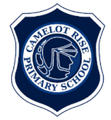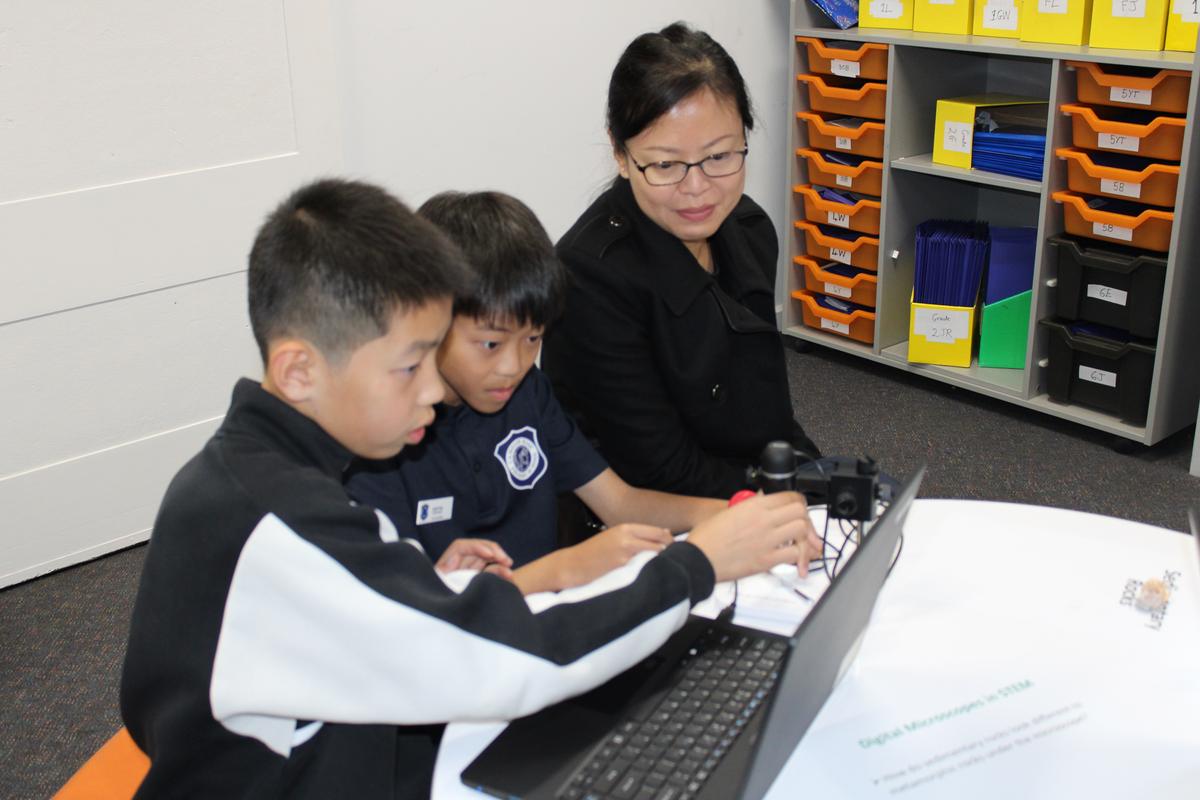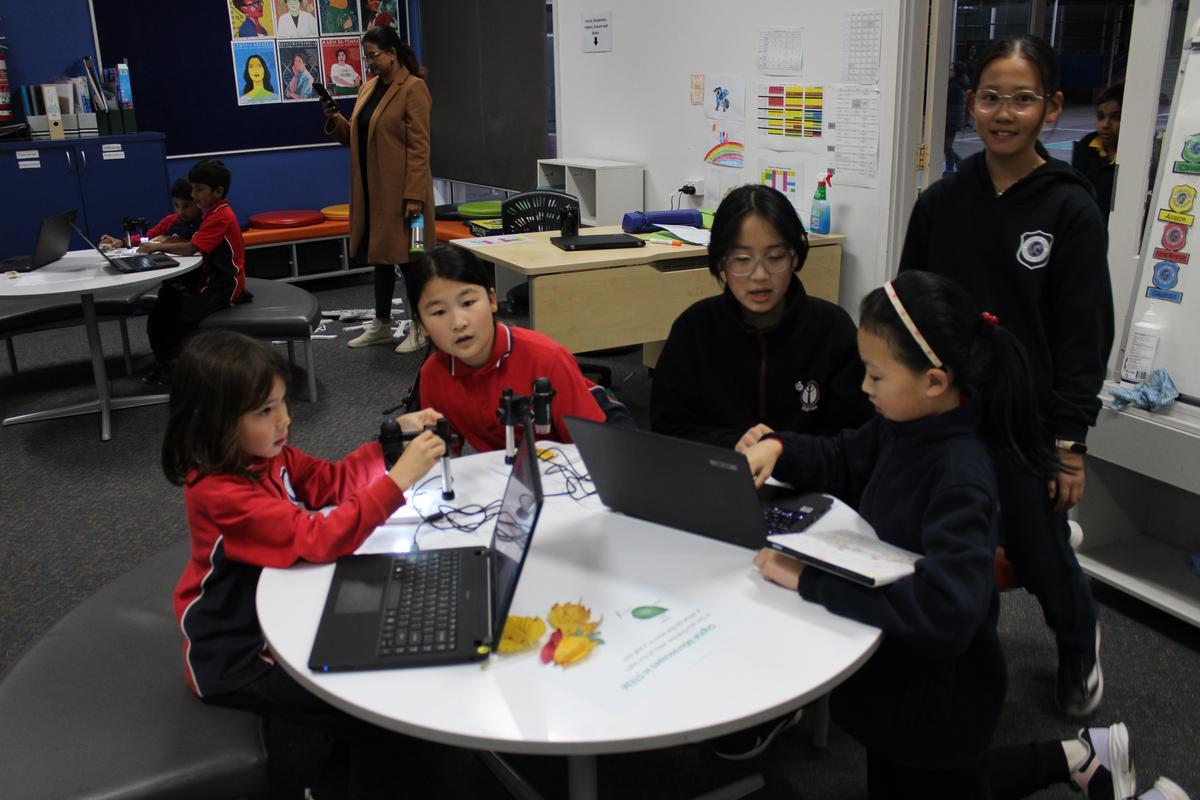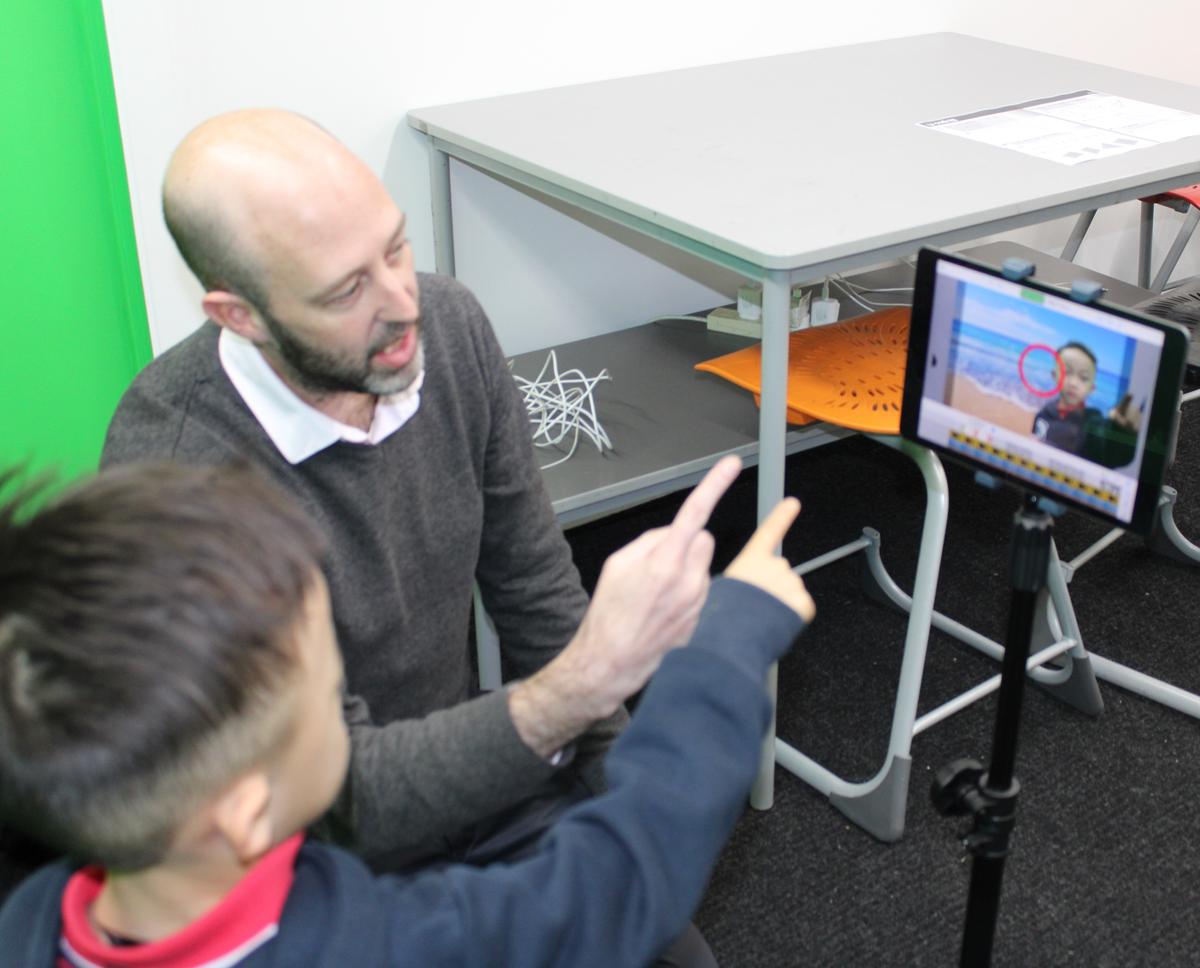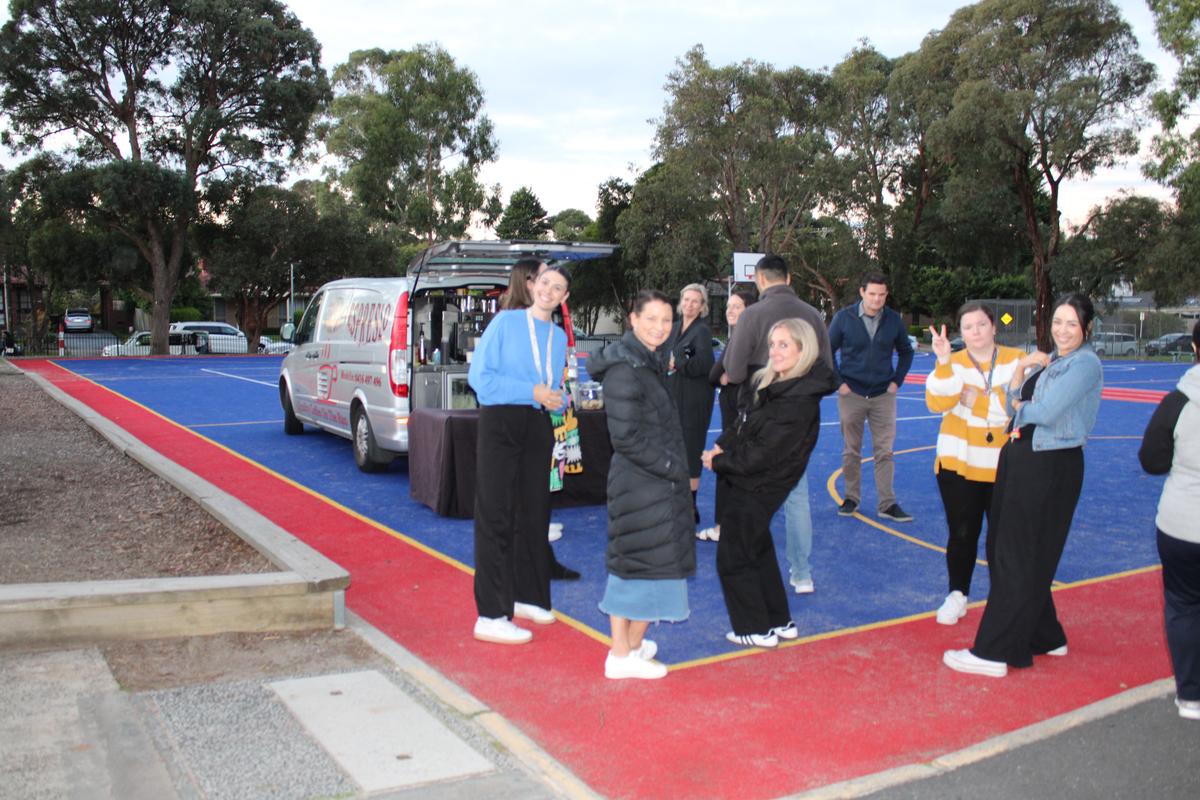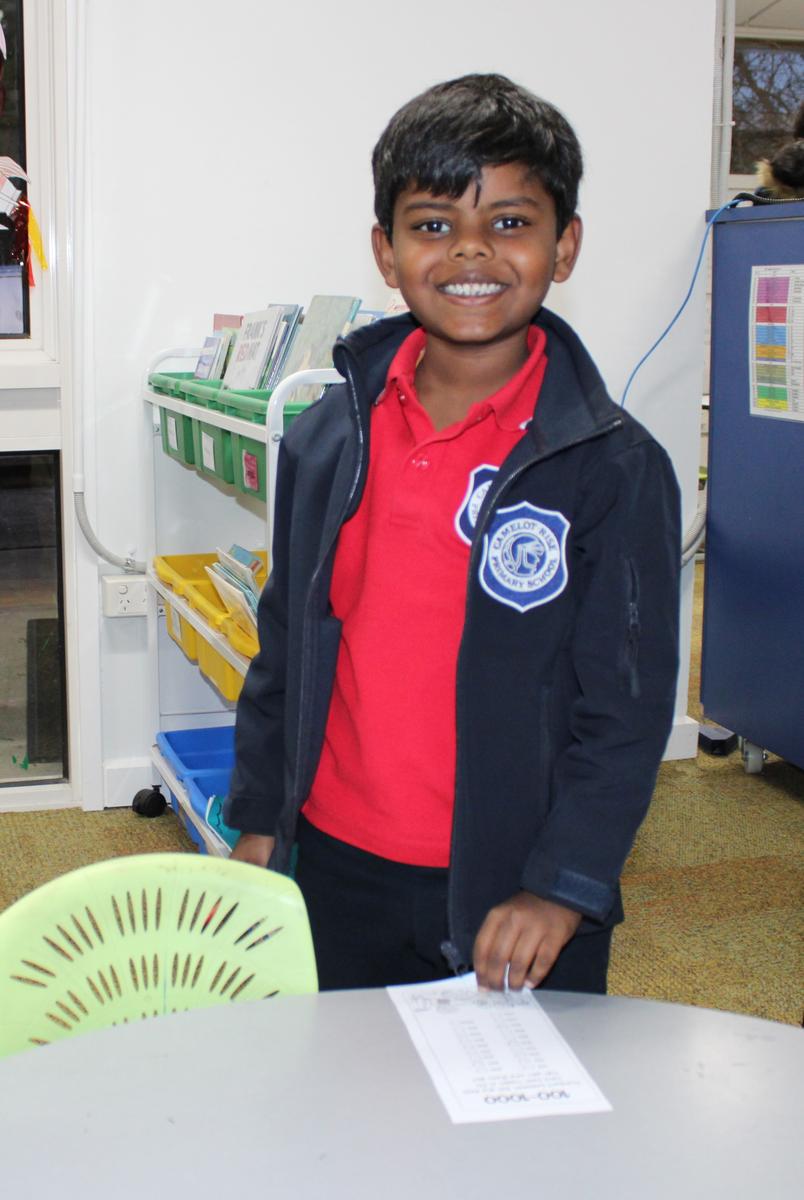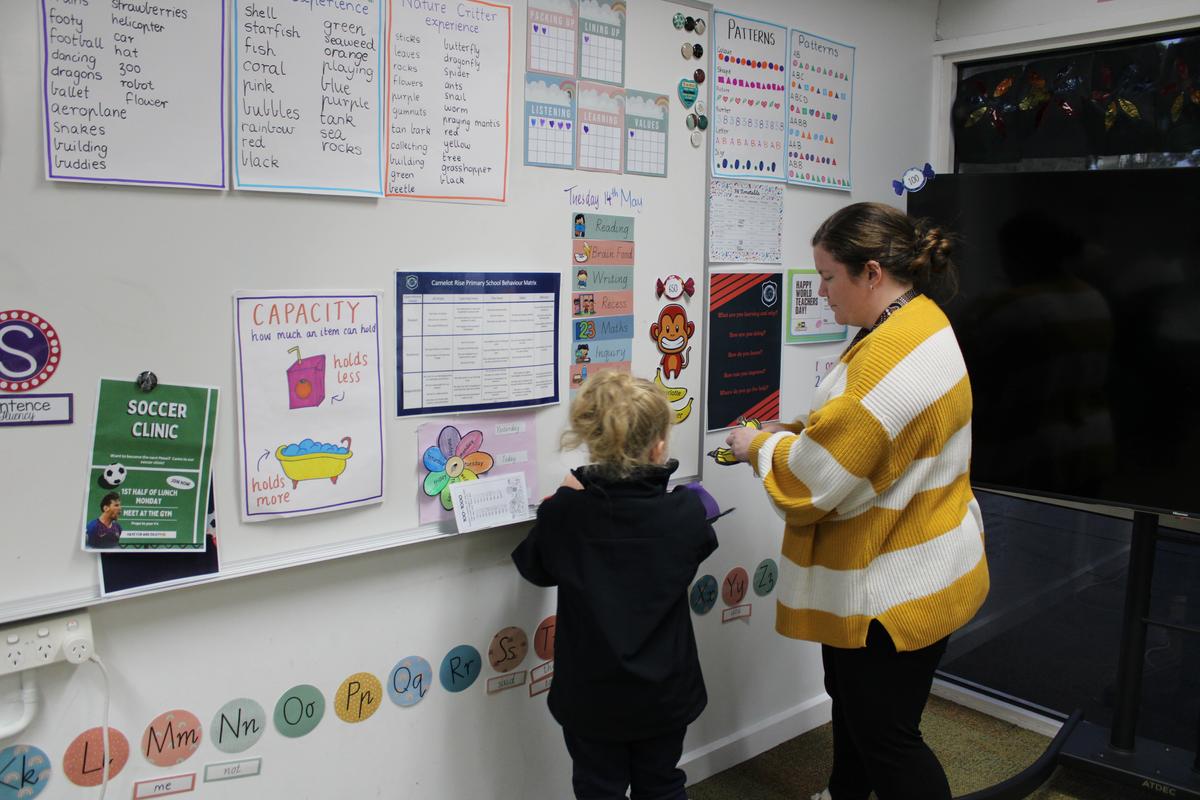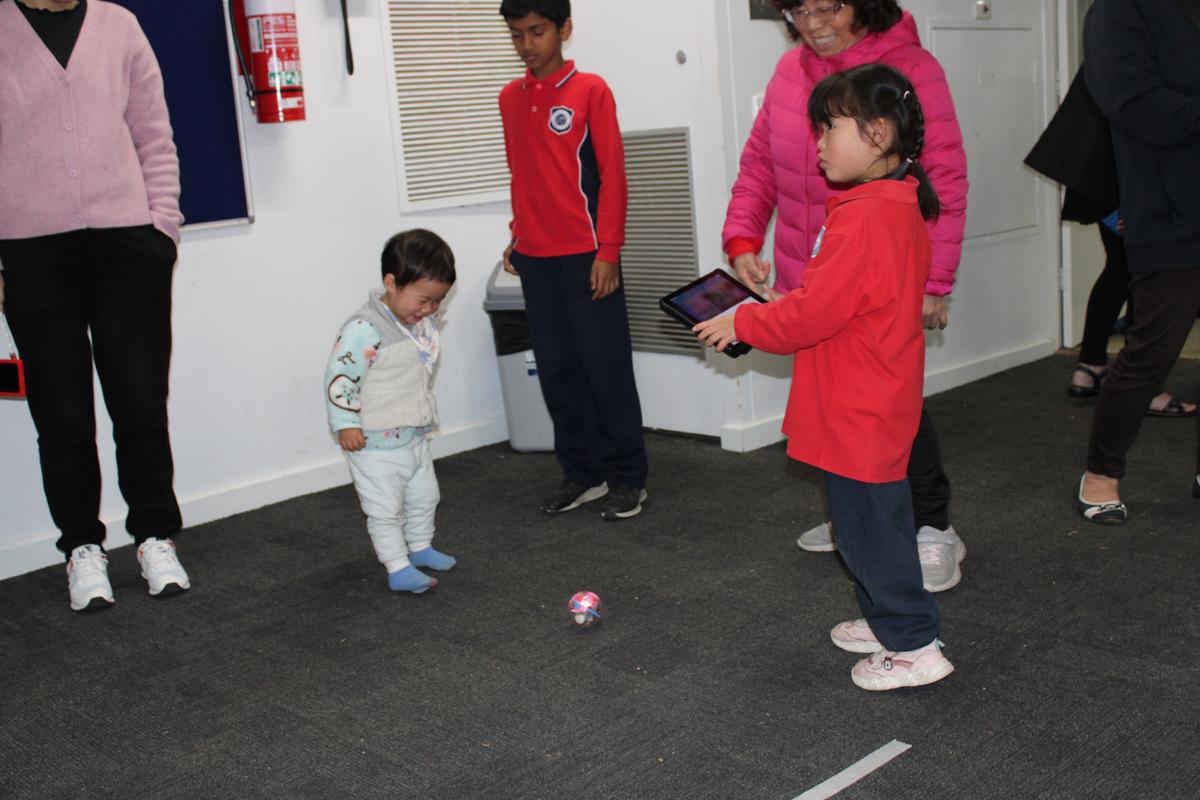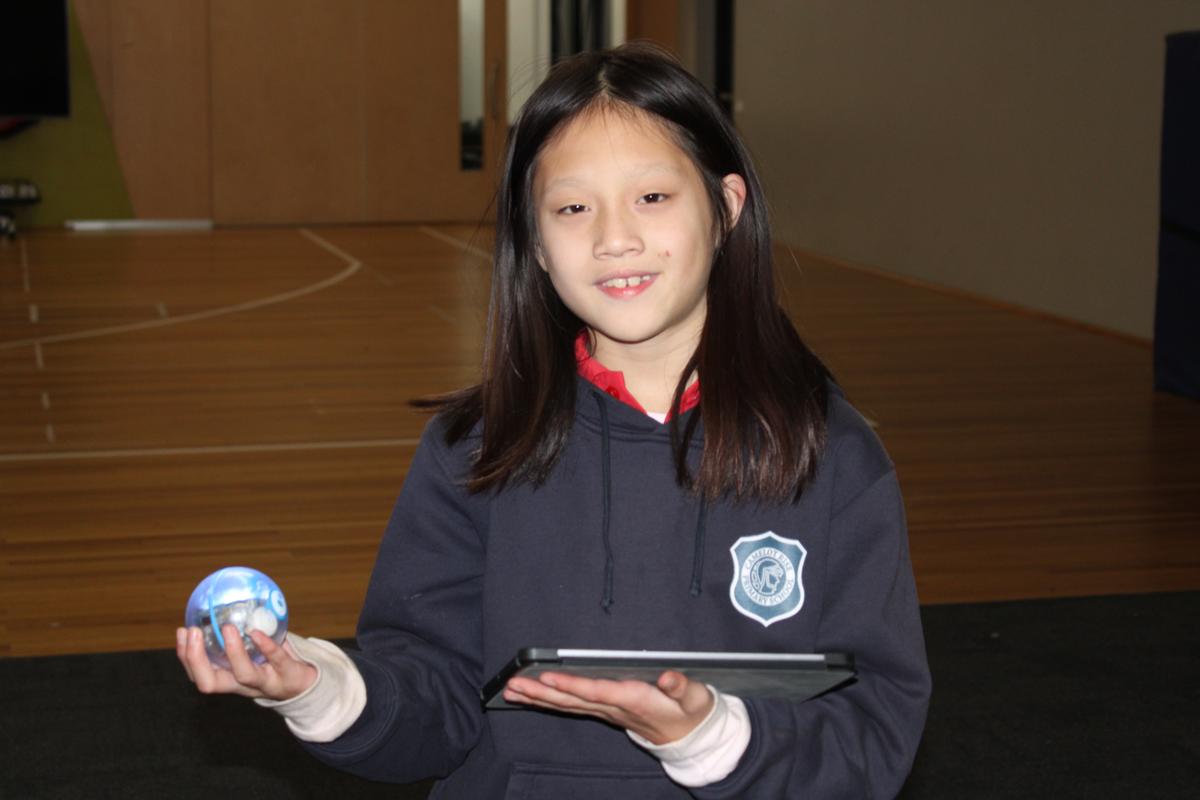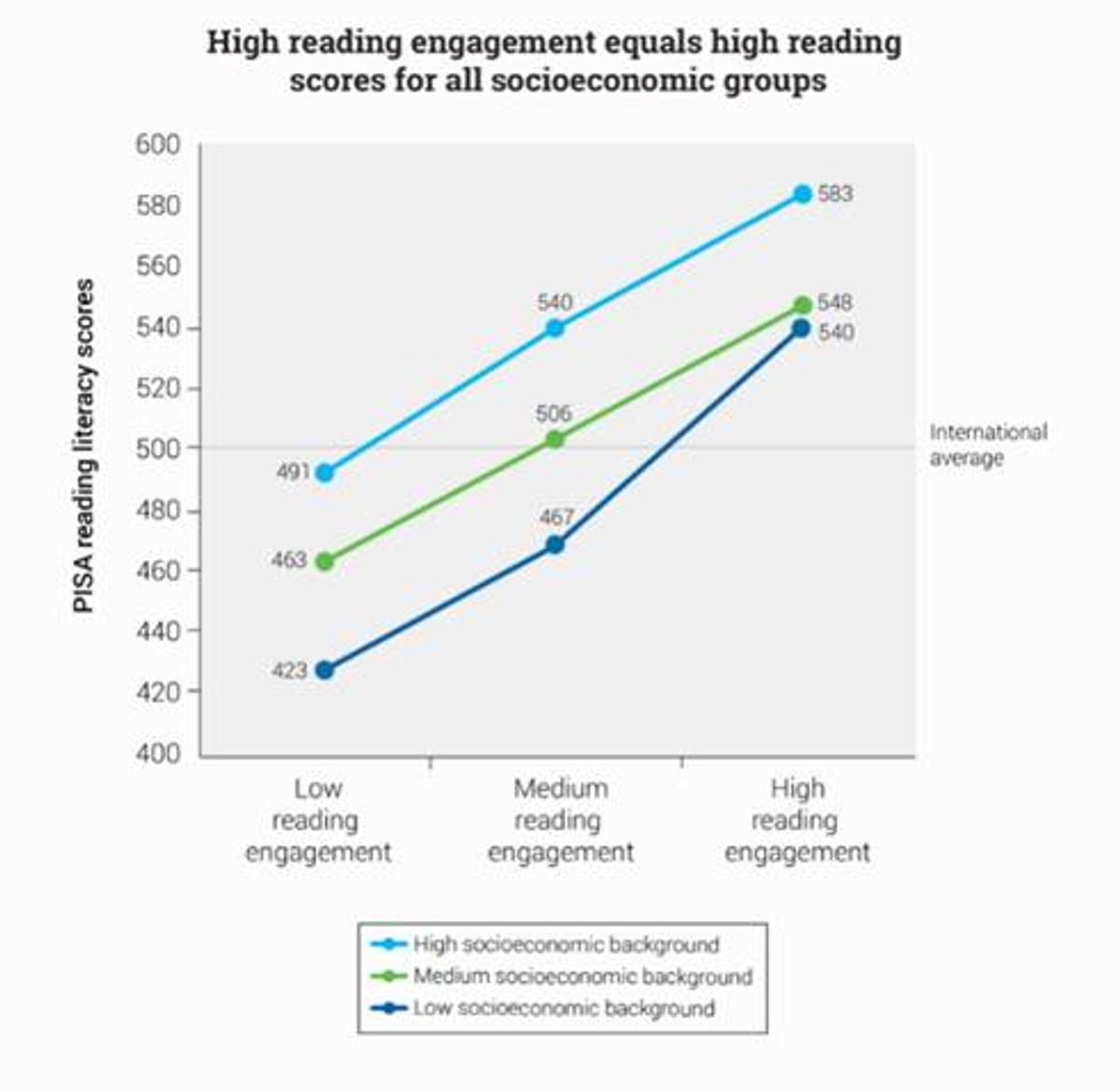From the Principal

Open Day/Night
Thank you to the many students, parents, grandparents, friends and staff that made last Tuesday’s Open Day / Night such a great success. We were thrilled with the number of people that attended our school throughout the day and were actively involved in the Maths activities in the classrooms. It was great to see families attend the Specialist rooms throughout the night and having the opportunity to learn about the wide range of curriculum activities our students are exposed to.
Many families and children enjoyed seeing how fast they could actually run in the gym, they enjoyed movie making in the Green Room and explored Virtual Reality in the Camp Australia Out of School Hours Care Room. The classrooms were abuzz with the rich open ended learning tasks that were enjoyed by our students and their families.
Thanks to Ms Hong and the Choir who opened the night up with two wonderful songs. This was a great way to open this special night for our school community.
NAPLAN results
Our preliminary NAPLAN results have arrived at school, and as a school we have again scored very well.
We anticipate that the individual results for Year 3 and 5 students will arrive later this term. Once we have these, we will send them home to families.
Our staff always look closely at the results and use the data, as well as other forms of assessment and work completed in class, to inform their teaching and learning program to ensure we are always teaching to each child’s ‘Point of Need’.
2023 Annual Report
Our 2023 Annual Report has been approved by the Department of Education and the School Planning and Annual Reporting Unit. This report highlights our many achievements in 2023 and a copy of this report can be found on our school website. Our entire school community should be very proud of these results.
https://www.camelotrise.vic.edu.au/annual-report
2025 Foundation Enrolments
It’s that time of the year again where school tours are coming thick and fast, as are
applications for enrolment. We already have over 50 applications for Foundation in 2025 and we expect that number to continue to increase by the time enrolments close on July 26th. It would be a great help to us if all families could apply via the new online portal by July 26th.
To commence online enrolment: Visit Home (educationapps.vic.gov.au) to create an account and complete the online application form. Please ensure that all documents required are attached to the application.
We have recently been informed by the Department of Education that we now have an enrolment cap of 66 students in Foundation. This enrolment cap has been put in place to ensure that we don’t grow too big in student numbers and exceed the physical resources (classrooms) that we currently have.
It is wonderful recognition of our school that the Department has placed this enrolment cap on our school. We are a sought-after school, and this is due to the efforts of our students, parents and staff at Camelot Rise Primary School.
Student Mental Health and Wellbeing
onPsych mental health and counselling is available at our school!
Do you find that your child is having emotional or behavioural issues? Are they struggling socially, academically? Camelot Rise Primary School has a registered mental health social worker to support your child.
Tracy Harris is a registered Mental Health Social Worker who specialises in child and
adolescent mental health. Her services are provided at the school at no out of pocket cost through Medicare bulk billing or NDIS. She will work collaboratively with you, your child, and the teachers to maximise opportunities for positive growth.
If you believe that this might benefit your child, please contact the school administration staff and request a Parent Pack for further information.
We have been very fortunate to work closely with onPsych over the past few years and we are very grateful for the service they provide and the support that they offer to our students.
Reading is Everything!
As the colder months descend on us and the days get shorter, there is no better time to grab a book and curl up under the doona or in front of the fire. By any measure, reading for more than 15 minutes per day has enormous benefits for life outcomes. Fifteen plus minutes of active reading helps students achieve higher academic growth than their peers. 30 minutes is even better, and 60 minutes has enormous benefits. Studies show that only 18% of students read for 30 minutes per night and that at 60 minutes, student growth is on average 48% higher than the average, no matter what the child’s background.
The table also shows the correlation between high reading engagement against international student rankings. Those coming from the lowest socioeconomic backgrounds achieve well above the international average if they read regularly. If we compare a student from a low socioeconomic background who does not read daily, with a student from a high background that does, the difference is massive. That difference is cut dramatically by high reading engagement. The evidence could not be clearer. If you want your child to succeed, read to them and give them plenty of opportunities to read. If you still have pre-schoolers, the research shows how significant being read to is, enabling students to start school with reading skills well above their peers. From my own experience, when my own children wanted to stay up later, our first negotiation led to bedtime being extended by 30 minutes, on the proviso that they read in bed for those 30 minutes. Not only did it help them fall asleep as they disconnected from devices, but it boosted their reading time. Win-win-win! As I have said many, many times, reading is everything and is the key to your child enjoying a successful future.
I have included an article below that further outlines the importance of reading daily.
WHY READING EVERY NIGHT IS SO IMPORTANT:
The following article again illustrates just how important the practice of reading nightly is.
Why Can't I Skip My Twenty Minutes of Reading Tonight?
(Source Unknown)
Let us figure it out -- mathematically!
- Student A reads 20 minutes five nights of every week;
- Student B reads only 4 minutes a night...or not at all!
Step 1: Multiply minutes a night x 5 times each week.
- Student A reads 20 min. x 5 times a week = 100 mins. /week
- Student B reads 4 minutes x 5 times a week = 20 minutes
Step 2: Multiply minutes a week x approximately 4 weeks each month.
- Student A reads 400 minutes a month.
- Student B reads 80 minutes a month.
Step 3: Multiply minutes a month x 9 months/school year
Student A reads 3600 min. in a school year.
Student B reads 720 min. in a school year.
- Student A practices reading the equivalent of ten whole school days a year.
- Student B gets the equivalent of only two school days of reading practice.
- By the end of Year 6 if Student A and Student B maintain these same reading habits, Student A will have read the equivalent of 60 whole school days.
- Student B will have read the equivalent of only 12 school days.
One would expect the gap of information retained will have widened considerably and so, undoubtedly, will school performance.
How do you think Student B will feel about him/herself as a student?
Some questions to ponder:
- Which student would you expect to be the more proficient reader?
- Which student would you expect to know more?
- Which student would you expect to write with greater proficiency?
- Which student would you expect to have a broader vocabulary?
- Which student would you expect to be more successful in school....and in life?
Stay well this winter
Symptoms of influenza (flu) can hit very quickly and may last several weeks. Vaccination is the best way to protect yourself and others from getting the flu.
Keeping our school community well
Parents, carers and students are encouraged to practice prevention measures, including:
· washing and sanitising hands regularly
· avoiding touching eyes, nose and mouth with unwashed hands
· covering nose and mouth when coughing or sneezing
· staying home if unwell and consulting a general practitioner (GP) or Nurse-on-call as required
· staying up to date with flu and COVID-19 vaccinations.
Flu vaccinations
Flu vaccinations can be booked through GPs and pharmacies, many of which can also provide COVID-19 vaccinations. Flu vaccination is recommended for everyone aged 6 months and over.
Some people are more at risk of complications from flu and are eligible for free vaccination as part of the National Immunisation Program.
COVID-19 booster
The 2024 COVID-19 booster dose is available for everyone aged 18 and above.
Getting your booster dose remains the best way to prevent severe illness or hospitalisation, especially in people aged over 65 and those at higher risk of severe illness.
Children aged between 5 and 17 years who are at risk of severe illness can also receive a 2024 booster dose.
You can get your next dose at your local pharmacy or GP. To find one near you, refer to the vaccine clinic finder.
Find out more
For more information about preventing flu, and immunisation, refer to:
Influenza (flu) – immunisation - Better Health Channel
Matthew Coney & Ben Heys
